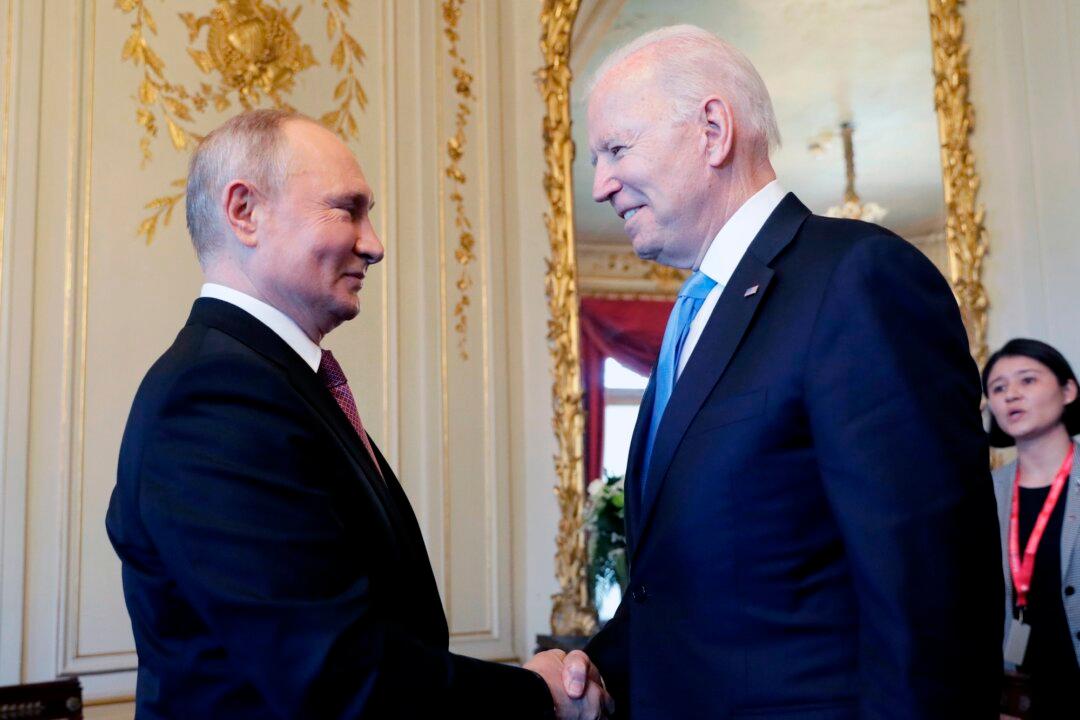President Vladimir Putin’s summit with U.S. President Joe Biden in Geneva on June 16 has unleashed another hot topic—the Moscow stance toward Beijing.
While China was not part of official discussions between the two leaders, it was not ignored by both pro-Kremlin and liberal Russian media who analyzed the meeting.

